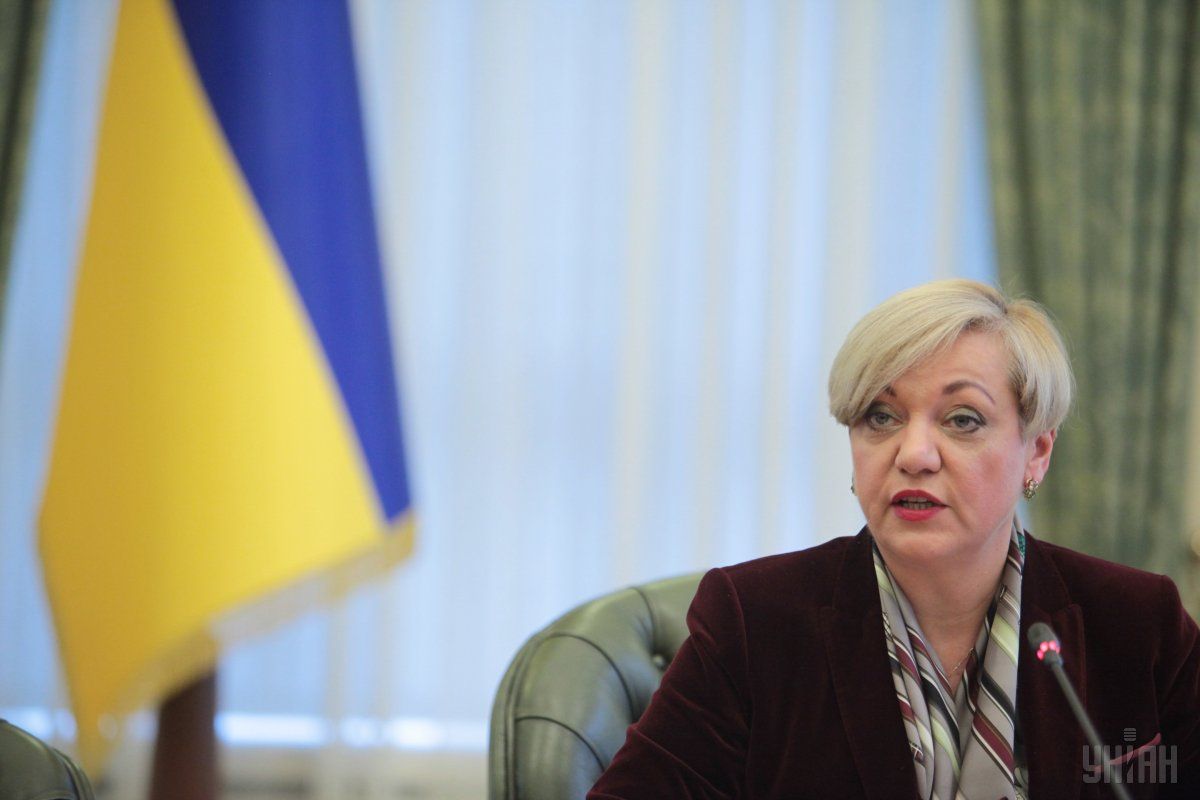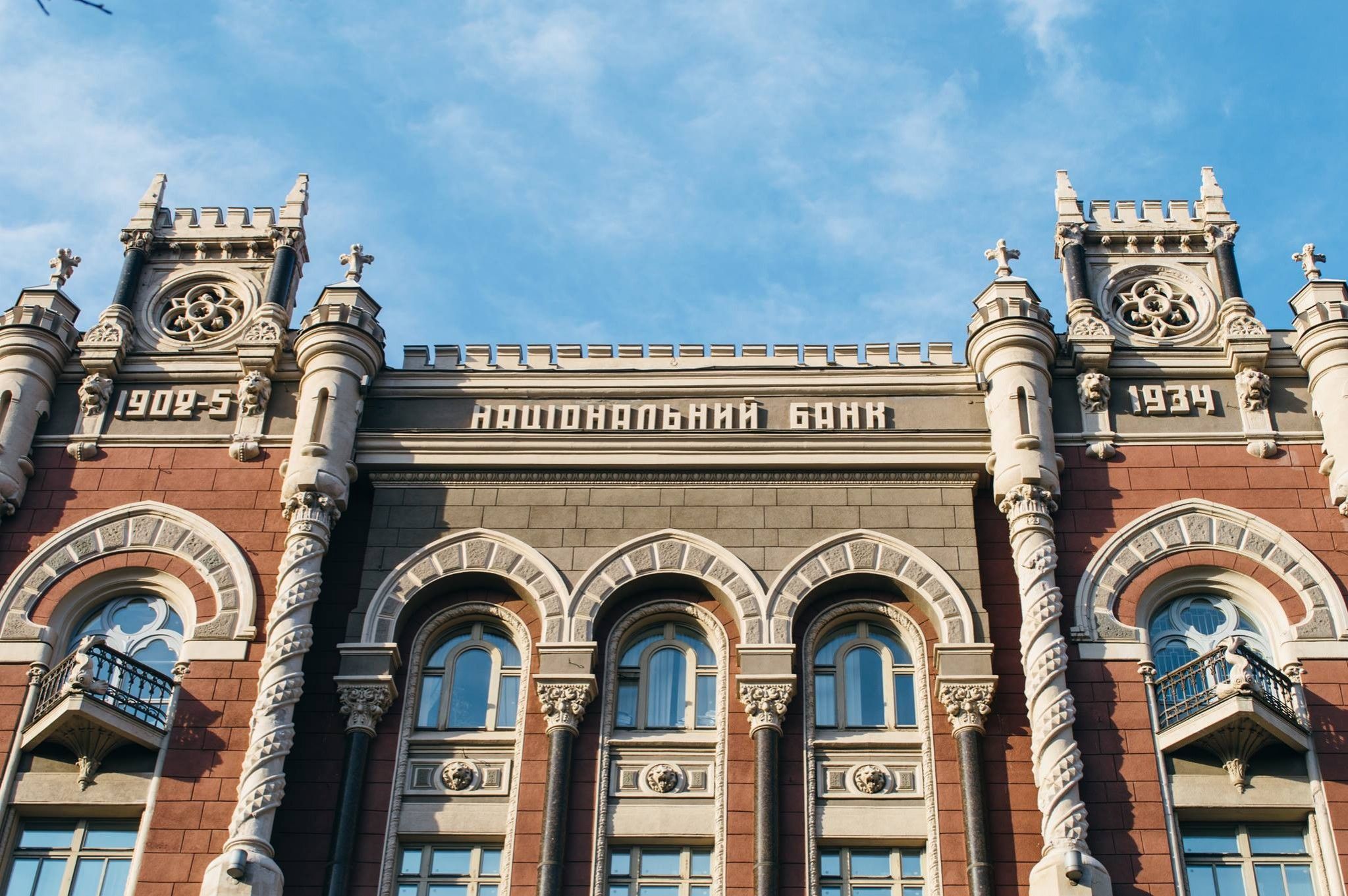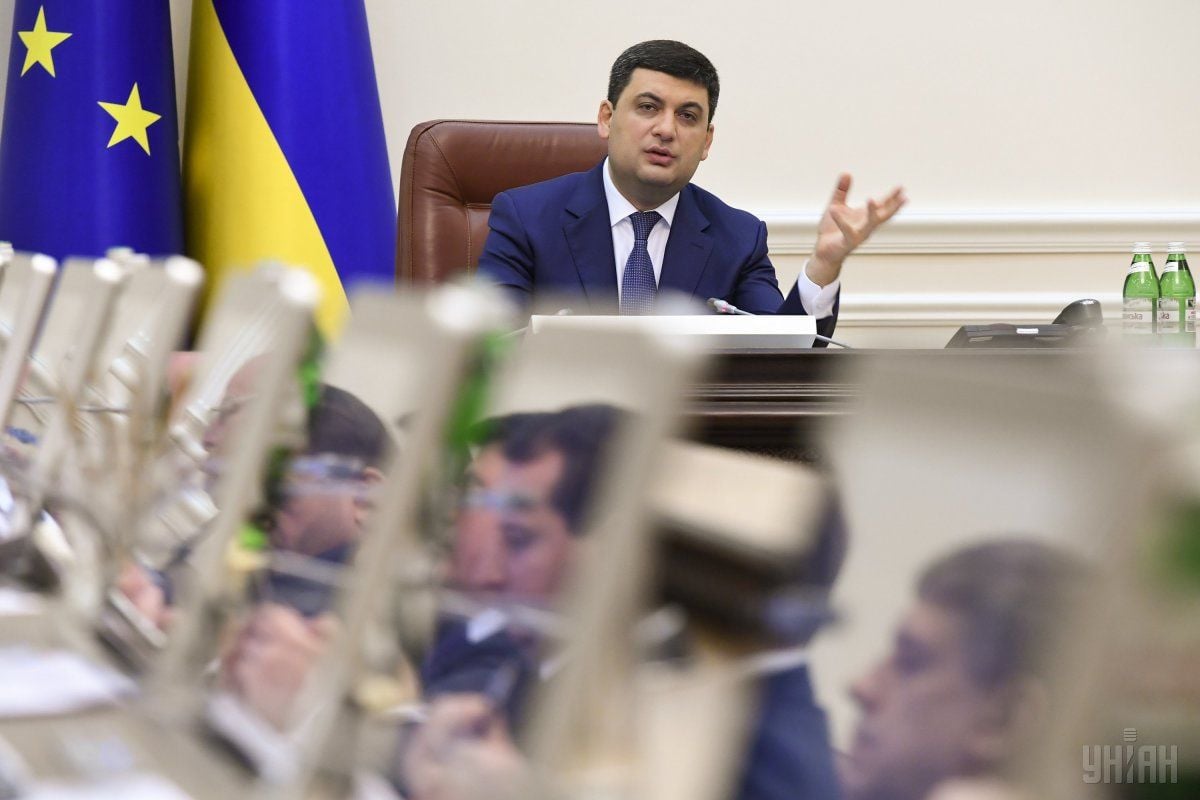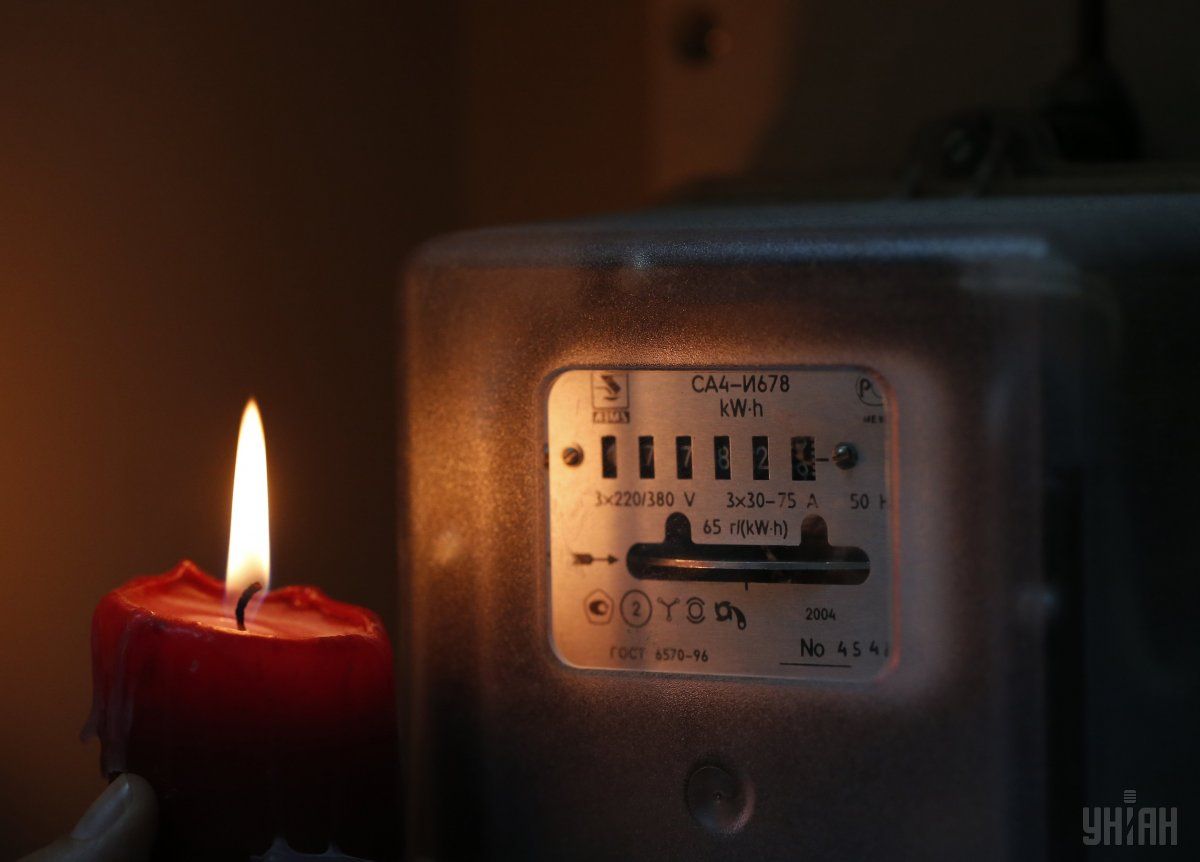
Week’s balance: Groysman’s year, Gontareva's resignation, and new legal field for electricity
The government of Volodymyr Groysman marked its first year since the appointment, the head of the National Bank wrote the long-promised resignation letter, while the Rada adopted a law on electricity market - these are the key economic news of the outgoing week.
The mission is accomplished, and reforms are in place. This was the main line of the NBU Governor Valeria Gontareva’s press conference early this week where the central bank chief announced her resignation. "I hope that the president will soon accept my resignation and submit a corresponding request to the Verkhovna Rada [for the approval]," she said.
At the presser, Gontareva summed up her three-year reign of the NBU. In her opinion, the main achievements are the stabilization of the macroeconomic situation, the build-up of a modern central bank, and the purging of the banking sector. In particular, 92 banks were withdrawn from the market, including five in 2017.
"Of 180 banks at the beginning of 2014, there are now 91 banks in the market. We have already checked 60 banks, and that is 97% of our banking system. We identified the owners of all banks, so the system is now 100% transparent," said Gontareva.

According to her, also the marker of stabilization of the banking system is the repayment by banks of debts on refinancing, which during the period of her cadence have decreased almost two-fold - from UAH 111.7 billion to UAH 60.4 billion.
However, not all financial institutions have paid off their debts to the NBU. Dmytro Firtash’s Nadra bank owes the regulator some UAH 9.8 billion, while Kostyantyn Zhevago’s Finance and Credit owes some UAH 6.3 billion. And these two are not the only ones on the list of debtors.
Also in the course of her speech the head of the National Bank of Ukraine told about her vision on who can replace her at this post, noting that a candidate should be a politically independent banker. She refused more comments on the issue, recalling that the issue of appointing her successor is in the competence of the president and the Verkhovna Rada.
Meanwhile, the pro-presidential faction has already said the chairman of the board of Raiffeisen Bank Aval, Volodymyr Lavrenchuk, may replace Ms Gontareva or the first deputy chief of the NBU will be managing the central bank as an acting chief, until the political forces agree on a new candidate.
It is obvious that the NBU Governor will resign no earlier than mid-May, when people's deputies will return to the session hall after a month-long break. Meanwhile, certain deputies began to collect signatures under a motion to probe Gontareva’s activities as the country's chief banker. Interesting messages should be expected from law enforcement agencies, in particular, the National Anti-Corruption Bureau. By the way, NABU has already conducted several searches in the premises of the National Bank.
In addition, there was information that, in addition to abuse in the process of refinancing a number of banks, the leadership of the NBU and the Deposit Guarantee Fund are suspected of artificially lowering the value of assets of 68 banks under liquidation - from UAH 415 billion to UAH 99.4 billion, to sell them to controlled entities at lower prices.
NBU easing

Taking advantage of the calm in the market following the receipt of another bailout tranche of the International Monetary Fund, the National Bank decided to lower the key rate by 1 pp. - down to 13% per annum. The regulator kept it at 14% per annum for four consecutive months - from October 28, 2016. The National Bank explained its decision by the fact that consumer inflation, which in March accelerated to 15.1% in annual terms, was below the forecast trajectory.
According to the NBU estimates, the easing of monetary policy will not hinder the achievement of the goal to reduce inflation by the end of 2017 to 8%, +/- 2 pp., and will not have a destabilizing effect on the foreign exchange market, despite the worsening of the balance of payments forecasts after the introduction of a trade blockade of the occupied territories of Donetsk and Luhansk regions.
In particular, as explained by NBU head Valeria Gontareva, the regulator worsened the balance of payments forecast, expecting a decline in foreign currency earnings, but left unchanged the forecast for inflation, estimating its decline by the end of this year to 9.1%.
"We simply reduced the volume of foreign currency redemption in the market to replenish reserves," explained Gontareva, noting that this step will weaken the trade blockade’s expected a negative effect on the market.
It is worth noting that the decision by the National Bank to reduce the key rate has somewhat surprised the market, as experts interviewed by UNIAN ahead of the move predicted a symbolic rate cut or its retention at the same level. "The NBU's assessment was more optimistic than expected. This decision means that the regulator expects inflation to decline in subsequent periods," a financial analyst at ICU Group Mykhailo Demkiv told UNIAN.
Meanwhile, the situation on the foreign exchange market remained calm throughout the week, as the hryvnia won 20 kopiykas from the dollar, having strengthened at the level of UAH 26.8 / USD by the end of the outgoing week. Taking advantage of the positive trend, the National Bank twice entered the inter-bank market with auctions for the purchase of foreign currency, increasing international reserves by almost $76 million.
Also, the regulator continued serious steps to liberalize the foreign exchange market, started a week earlier, after receiving the IMF disbursement. In particular, the NBU allowed businesses to pay dividends to foreign investors for 2014-2016, while the maximum amount of relevant transfers abroad was increased five-fold, to $5 million within a month. The businesses will be able to take advantage of this regulation from May this year.
In addition, since April 14, the National Bank has allowed banks early repayment of loans to non-resident banks rated at least A3/A- by the world's leading rating agencies (Fitch Ratings, Standard & Poor's or Moody's) and bank debts on Eurobonds, as well as increased by five times - up to $5 million - the maximum amount of prepayment under import contracts, in the case of non-use of letters of credit.
According to the NBU estimates, these steps will help improve the investment climate in the country and simplify the activities of exporters. At the same time, they are not expected to shake the balance of the country's foreign currency market.
Government Report

On April 14, the year has passed since the appointment of Volodymyr Groysman's government. In this regard, the prime minister gave a fairly emotional and solemn speech to the Verkhovna Rada, demonstrating once again his leadership skills.
In his half-hour speech, Groysman noted among his government’s major achievements the renewed economic growth, decentralization success, and strengthening of energy independence, as well as the reduction of the corruption level in the system of public procurement, especially in the healthcare sector.
Speaking from the parliamentary rostrum, Groysman reiterated the government’s priorities for 2017 - pension and land reforms, transparent privatization, as well as reforms in the areas of education and healthcare.
"I am ready to bear all political responsibility for the success of these reforms, but I believe in the success of the reforms," Groysman said, calling on Parliament to consider and adopt a package of laws as soon as possible that would change the macroeconomic situation, ensure economic growth and enhance social protection of the population.
Meanwhile, the businesses note among the government’s major successful efforts a number of tax and customs innovations aimed at facilitating the life of entrepreneurs, including the launch of electronic reimbursement of value-added tax, the launched process of creating the Financial Investigation Service, the electronic document management system "Single Window" at the customs.
Businesses also suggest the main infrastructural victories of Groysman’s government are the avoidance of an increase in the administrative charge in ports and the creation of a special Road Fund. At the same time, businesses complain about logistical problems on rail, namely, the shortage of railway cars and transportation safety issues. The issues of revising the rates of port charges and the quality of the roads remain pressing.
However, Groysman pledged to triple the funding of the road sector compared with 2016, up to UAH 30 billion.
New electricity market

By 2020, the customers will enjoy the right to choose their electricity supplier, due to the adoption this week of the key legislation in the industry, the law on the electricity market.
However, the adoption of a key law is not a panacea for all problems in the energy market. According to an energy expert Ivan Plachkov, before going for a full-fledged launch of a competitive electricity market, Ukraine is yet to solve a number of problems: a high level of mutual debts between market participants totaling some UAH 30 billion, cross-subsidization of the population and industry both in terms of energy carriers and prices. In addition, it is necessary to monetize subsidies for electricity, water, and central heating, as well as make more accessible the connection of consumers to local power grids.
"The electricity market will not be created overnight, in one week, it will not even be created in one year. But this is a powerful start, this is the basis from which we will be able to further develop market relations in the electric power industry... We will see the result in a few years," said Deputy Energy Minister for European Integration Natalia Boiko.
The law is indeed revolutionary, also being one of the prerequisites for the allocation of a third tranche of macro-financial assistance from the EU in the amount of EUR 600 million, but not everything is as rosy as it seems at first glance.
For example, an expert in the energy sector, a former NEURC member Andriy Herus believes that due to the adoption of this law, electricity prices for the population could grow by two or three times.
According to Herus, the cost of electricity for small, medium-sized businesses and budget organizations may increase by one and a half or two times.
"But for the top-20 large enterprises-consumers, the price of electricity, perhaps, will not grow. It might as well decrease. They will be interesting for sellers, and there will be competition to win them," he added.
At the same time, the expert stressed that further liberalization of the market can’t happen without an increase in electricity prices.
"Could market liberalization take place without an increase in the price of electricity? No. But the market price, that is fair price, is completely different given different degrees of market monopolization. The higher the level of competition in the market, the lower the price and the higher the quality,” he said.
Oleksandra Danko

